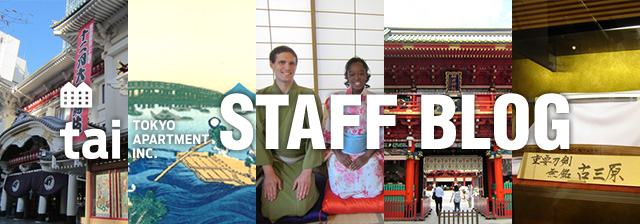July 12, 2017 1:05 PM
Land value recovery spreads to smaller cities in Japan
Weekly's Pick up
Weekly Pick up will introduce news to help you learn the trends about Japan market investment.
Land prices are climbing broadly across Japan thanks to many redevelopment projects as well as the growing demand for hotels and logistics facilities.
The roadside land value -- which is used as the basis for inheritance and gift taxes -- had increased on the year in 27 cities as of Jan. 1, two more than a year earlier, the National Tax Agency said Monday. The overall average roadside land price climbed for a second straight year.
In 10 municipalities across Japan -- including Tokyo, Fukuoka and Sapporo -- roadside land value rose more than 10%. Okayama, Oita and two other cities saw an increase between 5% and 10%. In 13 cities including Chiba, Gifu, Shizuoka and Otsu, the growth was less than 5%.
"Even outside of metropolitan areas, the land value of prefectural capitals has started to pick up," observed Shigeo Hirayama, a managing executive officer at the Urban Research Institute.
Logistics centers, hotels in need
One reason for this trend is a growing demand for logistics establishments, which account for about a fifth of real estate investments. To compensate for labor shortages in the logistics industry, many cutting-edge facilities are being built.
For four years starting in 2016, the new supply of large logistics facilities, defined here as properties with more than 10,000 sq.-meter site areas, will remain high, at nearly 2 million sq. meters a year in Tokyo and three surrounding prefectures, according to the Sumitomo Mitsui Trust Research Institute. Meanwhile, in the Osaka area, the figure is expected to reach a record this year. "New demand is emerging in locations where land value had been low," said the institute's Kunio Kitamura.
Last January, construction company Daiwa House Industry opened a 90,000 sq. meter logistics center -- one of the largest in the Kyushu region in the south -- in Umi, a town in Fukuoka Prefecture. Takeda Pharmaceutical plans to set up a drug-shipping facility in Sapporo in the northernmost prefecture of Hokkaido by March, in collaboration with partners including Astellas Pharma.
Demand for new hotels to serve the burgeoning number of visitors to Japan is also buoying land value. In 2016, Japan welcomed 24.03 million foreign travelers, up 22% on the year.
Offices hold sway
Even as roadside land values show signs of recovery, what happens next year and beyond will depend on the supply-and-demand balance of office buildings.
In 2018, newly available large buildings in central Tokyo are expected to triple in size on the year to 600,000 sq. meters, according to U.S. real estate services giant Jones Lang LaSalle. Beginning next year, many office-building redevelopment projects will get underway, in such areas as Otemachi, Shibaura and Hibiya. "For three years from 2018 to 2020, new office supply will be the highest in the past two decades," said Yuto Ohigashi at Jones Lang LaSalle.
Offices account for a majority of real estate investments. Consequently, when office rents drop, the overall land value could be affected.
(Nikkei)
Recent posts
- Mori Building reveals plan for 330-meter tower in $5.5bn downtown redevelopment
- Japanese brokerages pummeled by poor retail business
- Japan real estate recovery defies demographic decline
- Tokyo condo prices tower near record heights in 2017
- Tsukiji move delay clouds Tokyo waterfront plans
- Asia's big money reigns over Japan's property market
- Buying a house in Japan can be an investment in joy
- Japan's quality bubble explains its flat-lined GDP
- SUPPLY OF NEW APARTMENTS SHRINKING AS DEVELOPERS STRUGGLE TO SECURE LAND
- Tsukiji: From fish market to food theme park
Calendar
August
| M | Tu | W | Th | F | Sa | Su |
|---|---|---|---|---|---|---|
| 1 | 2 | 3 | ||||
| 4 | 5 | 6 | 7 | 8 | 9 | 10 |
| 11 | 12 | 13 | 14 | 15 | 16 | 17 |
| 18 | 19 | 20 | 21 | 22 | 23 | 24 |
| 25 | 26 | 27 | 28 | 29 | 30 | 31 |














